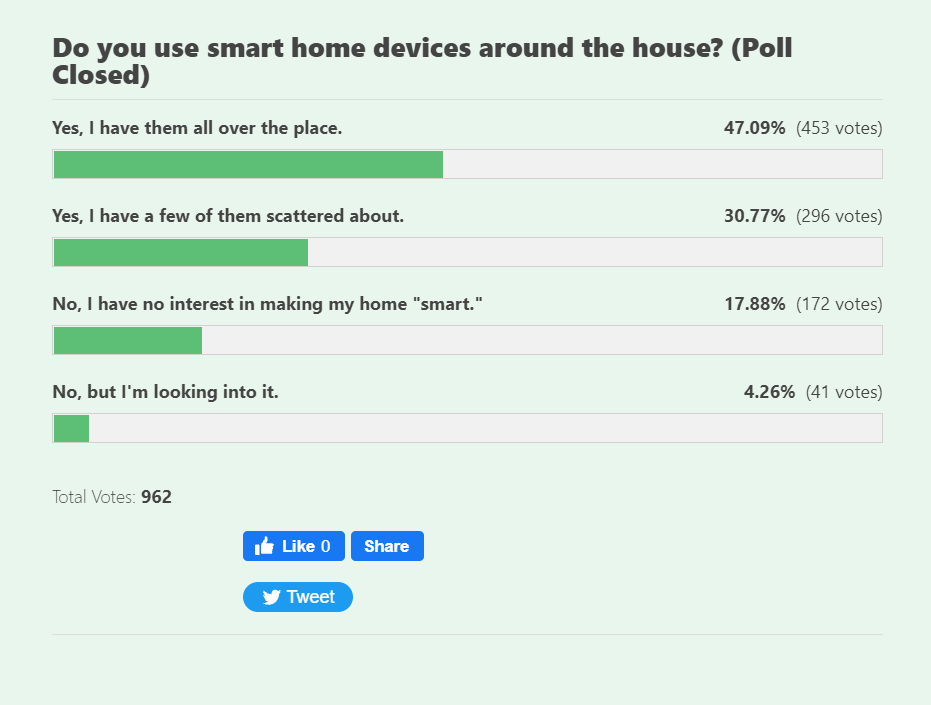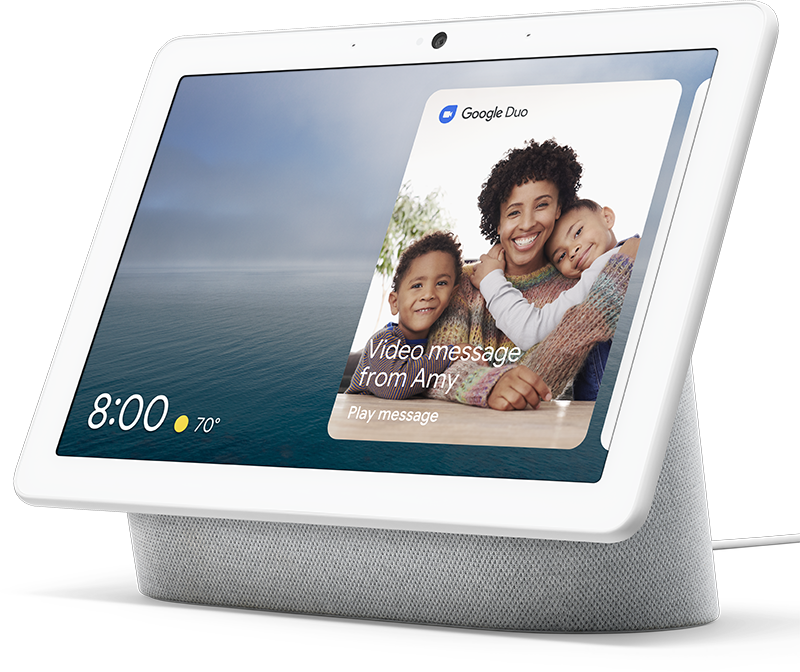Smart home is the way.
What you need to know
- Nearly 80% of our readers use smart home products around the house.
- A small percentage say they have no use for smart home devices, but some are looking into it.
- Others are less trusting of the companies behind smart devices.
Over the weekend, we asked whether or not our readers used smart home products around the house. With big players like Amazon and Google taking the reigns and improving on their offerings and services every year with some of the best smart displays, setting up smart devices is becoming easier than ever.
It seems those efforts are paying off. Out of 962 responses, nearly 80% of our readers say they use smart home products around the house, even if their homes are not littered with the devices.
While some brush it off as being lazy, one reader, Cheekid33, says that it's more about security.
A week ago I was notified that there was activity near my vehicle. I found out that they were attempting to break into my vehicle. My motion sensors and cameras made it possible given the incident occurred around 3am.
Something as simple as having a motion light activate and light a path for my daughter and then once she's back in bed the system will check the lights and for water that she has a habit of playing with.
One reader is even decked out in Google Assistant-enabled products, with multiple speakers, a bunch of lightbulbs, and even a couple Chromecast with Google TV dongles.
Others aren't so trusting when it comes to the companies controlling the tech. One reader on Twitter expresses their unwillingness to share any more data with the likes of Google or Amazon.
Smart homes may not be for everyone, but it seems that more and more people are adopting them as the technology matures. Of course, companies still have a way to go before more people are on board, and that mainly has to do with trust.
Total control
Nest Hub Max
One display to rule them all
The Google Nest Hub Max is one of the best smart displays for your home, thanks to its large display and smart video camera. It gives you one-touch access to all your smart home devices, or you can just ask Google Assistant to control them.
Source: androidcentral



